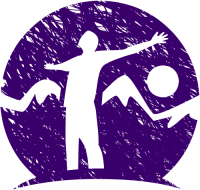Here is a fantastic article by Dr. Margaret Aranda that I found and wanted to share with all of you. I say it all the time! You have to be your best advocate. It doesn’t matter who you are or what degrees you have! Women are treated differently in the medical field..
IT WASN’T BY CHOICE: DYSAUTONOMIA
MONDAY, MARCH 9TH, 2015 / MARGARET ARANDA, MD Margaret Aranda 2015
It was just another sunny Malibu, California day back in April of 2006. My daughter and I had finished visiting Grandpa, and were on the road in front of Pepperdine University, where the sea gulls float in the air amidst the robust sea breeze. The smell of salt water permeated everything, and one could almost hear the crash of the waves, over and over again. My father had Alzheimer’s disease, so we were “regulars” at the Home. It was about 10 miles away, and we were headed home. POOF! In less than an instant of time, my truck was facing oncoming traffic as I heard a huge CRUNCH! Behind me, another truck was totaled in one large SMASH!
No one stopped. Blank, faceless people drove their cars to avoid hitting us, swerving to avoid hitting us. It was 2 pm on a Tuesday; they had nowhere to go.
I panicked and did the one thing that you are not supposed to do: get out of your car. I had to check on my daughter, my 3-year old baby, who was strapped tightly to her car seat. I was obsessive about that. I tried to stop the faceless drivers then, to help me get off the road, but they all drove by, glazed eyes. They had nowhere to go.
Our baby was fine. The driver had leaned over to stop her Chinese food from falling off the passenger seat, and lost control of her car as she pressed the gas instead of the brakes. There were no skid marks on the ground, and I never hit my head. We were ‘centrifuged’ and my brain suffered a torsion spin injury. We didn’t learn that for years. I felt fine on the scene. I watched the tow trucks take the other two cars away, wondering why they weren’t taking mine away, too. The rear axle was broken. The lady had been driving at a speed of about 90 mph.
People often stop me here and ask, “Did you get any money? Did you sue her?” Perplexed, I still fail to see the reasoning. So what if I got $70,000. I couldn’t walk; I couldn’t talk. For most of the nine years thereafter, I was bedridden.
Dysautonomia Diagnosis
I was confined to a wheelchair and couldn’t fit down a restaurant aisle. I couldn’t look at the shelves of yarn or I would throw up. The doctors thought I was malingering, until a cardiologist performed the Tilt Table Test and diagnosed me with dysautonomia. I was imbalanced and ataxic, and self-diagnosed a vertebral artery dissection. I went to Neurorehabilitation for weeks, and getting out of bed felt like I was a tremendous rock with no inertia, trying to move. Later, with the traumatic brain injury (TBI), I developed and self-diagnosed diabetes insipidus (DI), before I died of kidney failure. Even in the hospitals, the doctors asked me if I wanted valium, told me I was “too young to be a drug addict,” and asked me if I had a “psychiatric history.” The nurses would tell me to “just be a patient,” and then tell me “it’s a good thing you’re a doctor” when they tried to give me a beta-blocker to slow down my heart rate. My heart rate goes down to 35 beats/min every night. Slowing it down even more could have killed me during my sleep.
I lived on an IV PICC line for almost 4 years. What an oxymoron for an anesthesiologist to be constantly changing her own IV at home. It was a hard time. I got myself off the IV, by going down from 60 ml/hr to 59 ml/hr and so on. Finally, we pulled it out. The doctors did not realize that it could not stay in forever or I would die of an infection.
What I Learned: Fighting for Myself, Educating Others
What is the bottom line that I learned from all of this, being a doctor myself? Arguing with other doctors and surgeons for years? This is it: Women have to be knowledgeable about their own health. I had to fight for my diagnoses, each one of them, even the dysautonomia. It didn’t matter that I was a physician, my symptoms were downplayed and often ignored. Medications were offered that would have killed me. I had to fight. I had to become the expert in my own health. This was not an easy task when I was gravely ill but the choice was clear: fight back or die.
Eventually, I reached a point where I could at least write. My Stanford, USC, and Perelman University of Pennsylvania School of Medicine brain overflowed with medical information.
I did think straight on paper and in my own time (despite the doctors best attempts to convince me otherwise). So, in my trapped-in form of disarray, I learned about menopause, hormone replacement therapy (HRT), and common women’s health issues. I made it my mission to educate girls and women. Recently, I completed my fifth book, Archives of the Vagina: A Journey through Time. It starts from a girls’ First Period, and continues with thoughts Aristotle had on menstruation, other men who contributed to women’s age of consent for sexual intercourse. I pass it on to you as my life’s work to help women worldwide. If you are ill now, keep fighting.
Become the expert in your own health. Find your voice and when you can, help others find theirs too.






